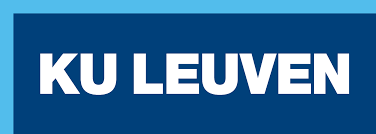KU Leuven

Situated in Belgium, in the heart of Western Europe, KU Leuven has been a centre of learning for nearly six centuries. Today, it is Belgium's largest university and, founded in 1425, one of the oldest and most renowned universities in Europe. As a leading European research university and co-founder of the League of European Research Universities (LERU), KU Leuven offers a wide variety of international master’s programmes, all supported by high-quality, innovative, interdisciplinary research.
Since its founding, KU Leuven has been based in the city that shares its name. Leuven is a pleasant, safe and bustling student town, where centuries-rich history meets cutting-edge science. The university also offers degree programmes at campuses in 11 Belgian cities, including Brussels, Ghent and Antwerp.
High-quality Education
KU Leuven offers high-quality education. Study programmes are research-based and organised within an innovative interdisciplinary framework. The programmes are flexible and use state-of-the-art ICT tools. The ECTS quality label guarantees that all credits obtained are transparent and fully transferable.
University’s vision of teaching and learning
The University of Leuven updated its vision of teaching and learning in 2009. This new vision does not mean a breaking with the past; instead it builds on the university’s educational approach “Guided Independent Learning” (12299) and resumes its fundamental elements in an updated framework (among others the introduction of the bachelor’s/master’s system; a more active approach of the teacher’s responsibility).
The university's vision of teaching and learning emphasizes the close link between research and education: study programmes are research-based, thus enabling students to acquire academic competences, including thorough knowledge and skills in the discipline, coupled with a broader interdisciplinary perspective, and a critical and research-oriented attitude. Moreover, students integrate these academic competences within a broad ethical,cultural, and social formation. Through this, they learn to make well-founded choices, and to act professionally, constructively and critically in their chosen field. This enables them to assume their social responsibility as committed citizens.
In the university's vision of teaching and learning, the active student is in the end responsible for his/her own learning process. It is the responsibility of the staff to provide optimal support for the student.
University Library, KU Leuven